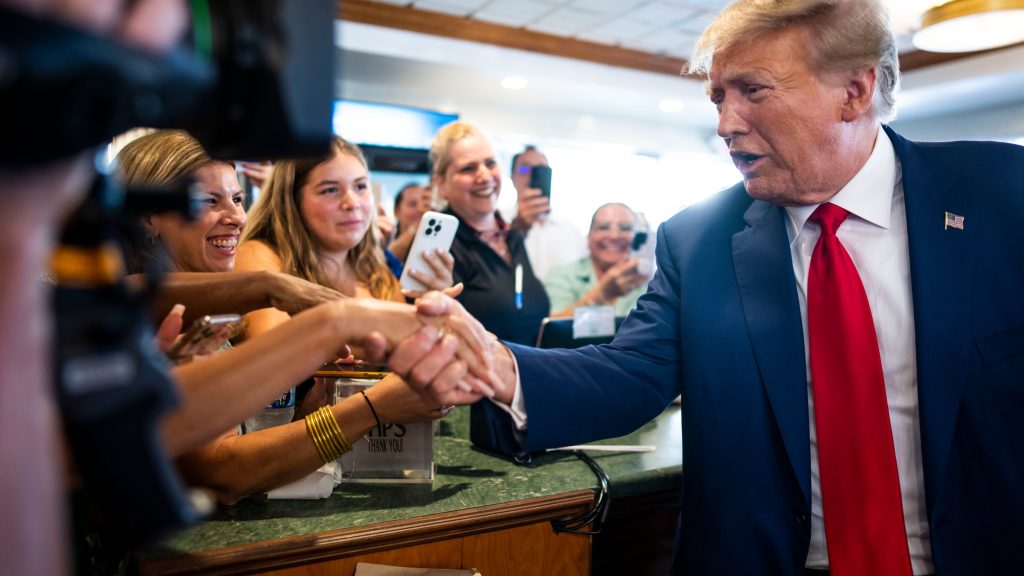Florida Attorney General Ashley Moody recently commended former President Donald Trump for his decisive action against Mexican drug cartels while criticizing President Joe Biden’s approach to the issue. Trump’s first-day executive decision to designate Mexican drug cartels as Foreign Terrorist Organizations (FTOs) has sparked widespread discussion, with Moody taking to social media to share her approval.
In a strongly worded post on the platform X (formerly Twitter), Moody expressed gratitude to Trump and reminded followers of her longstanding demand for similar action from the Biden administration. Her remarks reflect frustration among some conservative leaders and officials who believe the Biden administration has not done enough to curb cartel-related violence and drug trafficking.
A Long-Standing Demand
“Two years ago, I told Biden to designate Mexican drug cartels as Foreign Terrorist Organizations under federal law. He refused. @realDonaldTrump did it on DAY 1!” Moody wrote. “Thank you, President Trump. I look forward to working with you to secure our Southern Border, protect our citizens, and put #AmericaFirst.”
Moody’s comments echo concerns shared by 20 other state attorneys general, who signed a joint letter urging President Biden to take a firm stance on Mexican drug cartels. In her 2023 press release, Moody called on the administration to address the cartels’ role in trafficking fentanyl and other deadly drugs into the United States.
“It’s evident that the Mexican drug cartels are terrorist organizations. They are trafficking deadly fentanyl directly across the border, and it is killing tens of thousands of Americans every year,” Moody stated. “They are also fueling extreme violence at the southwest border and beyond. Sadly, the Biden administration has only emboldened the cartels to commit even more crimes on both sides of the border—through his unlawful immigration policies.”
The Fentanyl Crisis
The United States continues to grapple with the devastating impact of fentanyl, a synthetic opioid far more potent than heroin or morphine. According to the Centers for Disease Control and Prevention (CDC), fentanyl and other synthetic opioids were responsible for more than 70,000 overdose deaths in 2021 alone.
Mexican cartels, including the Sinaloa and Jalisco New Generation cartels, have been identified as major suppliers of fentanyl, heroin, and cocaine into the United States. These criminal organizations often exploit weaknesses in border security and immigration policies to smuggle drugs, fueling an opioid crisis that affects communities nationwide.
By designating these cartels as FTOs, Trump’s executive order gives the U.S. government new tools to combat their operations. These measures include freezing cartel assets, imposing travel bans on members, and pursuing harsher penalties for those involved in cartel-related activities.
A Divisive Policy
While Moody and other conservative leaders have praised the FTO designation, the move has not been without controversy. Critics argue that labeling cartels as terrorist organizations could complicate diplomatic relations with Mexico, a key U.S. ally. Mexican President Andrés Manuel López Obrador has previously rejected suggestions of U.S. intervention in his country’s internal affairs, emphasizing Mexico’s sovereignty.
Additionally, some experts caution that the FTO designation may have unintended consequences. For example, it could lead to increased militarization of the border or escalate violence in regions already destabilized by cartel activity. Others have raised concerns about the potential misuse of anti-terrorism laws, which could disproportionately impact migrant communities.
Comparing Trump and Biden’s Approaches
Moody’s praise for Trump highlights the stark contrast between his administration’s hardline approach to border security and Biden’s more measured policies. Trump’s presidency was marked by efforts to build a border wall, increase deportations, and crack down on illegal immigration. His administration frequently clashed with Mexico over issues related to trade, security, and migration.
In contrast, Biden has focused on addressing the root causes of migration, such as poverty and violence in Central America. His administration has also sought to reform immigration policies, including reversing several of Trump’s executive orders. However, critics like Moody argue that these policies have left the U.S. vulnerable to cartel influence and drug trafficking.
The Broader Implications
Designating Mexican drug cartels as FTOs could have far-reaching implications for U.S. domestic and foreign policy. On one hand, the move underscores the severity of the opioid crisis and the need for decisive action. On the other hand, it raises questions about how best to balance security concerns with humanitarian and diplomatic priorities.
For law enforcement agencies, the FTO designation provides additional tools to disrupt cartel operations. For example, authorities can now target financial networks that support these organizations, making it harder for them to launder money or fund their activities.
At the same time, the designation could strain U.S.-Mexico relations, particularly if it leads to increased American intervention in Mexican territory. In recent years, Mexico has struggled to contain cartel violence, with incidents like the Culiacán gun battle in 2019 highlighting the challenges faced by its security forces.
Moving Forward
As the debate continues, Moody and other conservative leaders remain committed to pushing for stronger action against cartels. Their support for Trump’s policies reflects a broader demand for accountability and results in addressing the opioid crisis and border security challenges.
In her social media post, Moody emphasized the need for collaboration between state and federal governments to tackle these issues effectively. “We must work together to secure our Southern Border, protect our citizens, and ensure the safety of future generations,” she wrote.
Final Thoughts
The fight against Mexican drug cartels is a complex and multifaceted issue that requires a coordinated response from both the United States and Mexico. While Trump’s FTO designation marks a significant step forward, it also highlights the ongoing challenges of combating organized crime and addressing the root causes of drug trafficking.
As policymakers and law enforcement agencies work to implement these measures, the focus must remain on protecting American communities from the devastating impact of the opioid crisis. At the same time, it is crucial to ensure that these policies respect human rights and strengthen, rather than undermine, international partnerships.
Disclaimer – Our editorial team has thoroughly fact-checked this article to ensure its accuracy and eliminate any potential misinformation. We are dedicated to upholding the highest standards of integrity in our content.





More Stories
Florida Attorney General Applauds President Trump’s Bold Action Against Mexican Drug Cartels
Florida Attorney General Applauds President Trump’s Bold Action Against Mexican Drug Cartels
Florida Attorney General Applauds President Trump’s Bold Action Against Mexican Drug Cartels